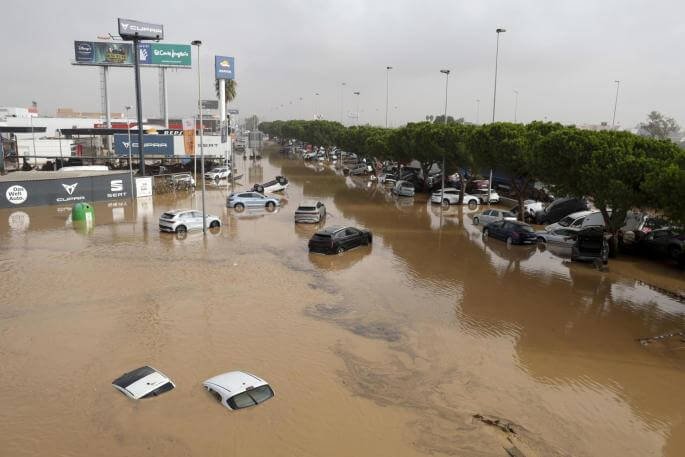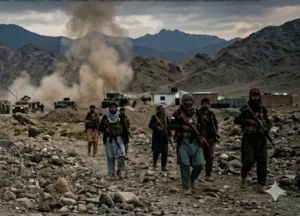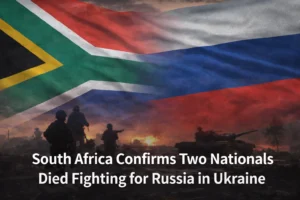Spain’s flood relief efforts are underway as the country struggles to cope with the devastating aftermath of flash floods that have claimed over 200 lives in Valencia. The floods, which scientists link to climate change, have left thousands stranded without access to necessities like water, food, and electricity.
Heavy rains that began on Monday have destroyed bridges, inundated towns with mud, and severed communication lines. Residents are outraged, citing the government’s slow response and lack of warnings before the flooding. Amparo Andres, a 40-year-old shop owner, narrowly escaped the floods but lost her business and home.
The federal government in Madrid is also under fire for not mobilizing the army sooner and declining France’s offer to send 200 firefighters. Prime Minister Pedro Sanchez has vowed to do everything possible to support those affected. Meanwhile, volunteers, mostly young people, organized through social media. They are leading clean-up efforts, marching in columns to the hardest hit areas.
Traffic restrictions have been implemented in Valencia to ensure emergency services can operate freely. Dozens have been arrested for looting, exploiting the desperation of affected communities. Other regions including Huelva and Cartaya, have also been impacted by heavy rains. Furthermore, hundreds evacuated from their homes in Jerez.
Experts attribute the severity of the floods to a lack of rainfall earlier in the year, leaving the ground unable to absorb water efficiently. Climate change likely played a role, with scientists estimating the rainfall was 12% heavier than usual.
As the situation unfolds, Spain’s government faces mounting pressure to address the crisis effectively. With troops now deployed to Valencia, the focus shifts to search and rescue and support affected communities. Effective Spain’s flood relief efforts will be crucial in mitigating the disaster’s impact.









